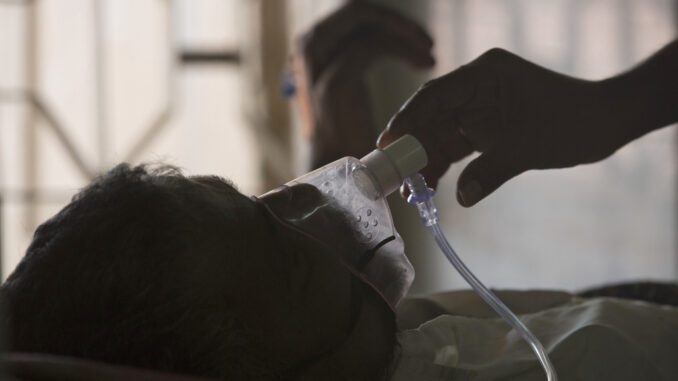
With the nation officially moving on from COVID-19 emergency mode, we are in grave danger of leaving behind friends and family who still need help. And if the federal government does not take action soon, we will see the suffering of individuals and our economy continue.
Post-acute long-haul COVID-19, or “Long COVID,” is when those infected by COVID continue to experience symptoms for weeks, months, and even years after the initial infection.
As a Social Security Disability attorney, I’ve had clients who are struggling with Long COVID, and I’ve seen how the Social Security system lets them down and leaves them behind.
Federal programs like Social Security Disability Insurance (SSDI) and Supplemental Security Income (SSI) are intended to help the members of our society who are unable to work ― and long COVID fits this description for many people.
And yet, people with Long COVID continue to struggle without the benefits our government offers to people with other debilitating conditions. At this pivotal moment, we cannot forget and abandon victims of Long COVID.
The barrier to care is the position of the Social Security Administration, which sets an unjustifiably high bar for receiving benefits.
To help, Sen. Thom Tillis, Sen. Ted Budd and North Carolina’s entire Congressional delegation should make a bipartisan request that President Joe Biden advise the Social Security Administration (SSA) to release a draft policy interpretation to reduce the burden of proof on applicants in establishing the debilitating nature of the disease. Without action by SSA, tens of thousands of people, along with our economy, could continue suffering great harm.
According to the Centers for Disease Control (CDC), long COVID is not a single condition but “a wide range of new, returning, or ongoing health problems that people experience after first being infected with the virus that causes COVID-19.”
There’s no standard treatment or diagnosis for Long COVID, but health problems can include brain inflammation, cardiovascular abnormalities, organ damage, migraines, mental health impairments, malaise and fatigue among others.
The impact on the economy is undeniable. Information from the U.S. Dept. of Health and Human Services estimated in Nov. 2022 that $50 billion in annual salaries is lost every year due to Long COVID — while the Brookings Institute estimated in August 2022 that the number was closer to $170 billion. Another study indicates that Long COVID is responsible for nearly 10 million unfilled jobs.
The human toll is also high. As of January 2023, SSA received about 44,000 applications for disability that referenced COVID. It can take more than 7 months for SSDI and SSI benefit decisions to get made, and this influx of new cases will likely have an effect on processing speeds.
But that doesn’t change what’s right. People with Long COVID are struggling, and we must make their paths easier.
Our elected leaders should encourage the SSA to promulgate a Social Security Ruling which provides guidance on how to develop evidence to establish that a person has a medically determinable impairment of Long COVID and how to evaluate it in disability claims.
There is precedence for this ― the SSA has released policy interpretations for fibromyalgia and other conditions that can be hard to diagnose and treat, including chronic fatigue syndrome, reflex sympathetic dystrophy/complex regional pain syndrome, and several more.
Social Security is intended to help people facing the exact challenges those suffering from debilitating long COVID are dealing with. Without quick action by the SSA, a large number of people will continue to suffer unjustly and needlessly.
Rick Fleming is an attorney at the Law Offices of James Scott Farrin, where he heads the Social Security Disability Department. He is a Past Chair of the Disability Advocacy Section for the North Carolina Advocates for Justice.
